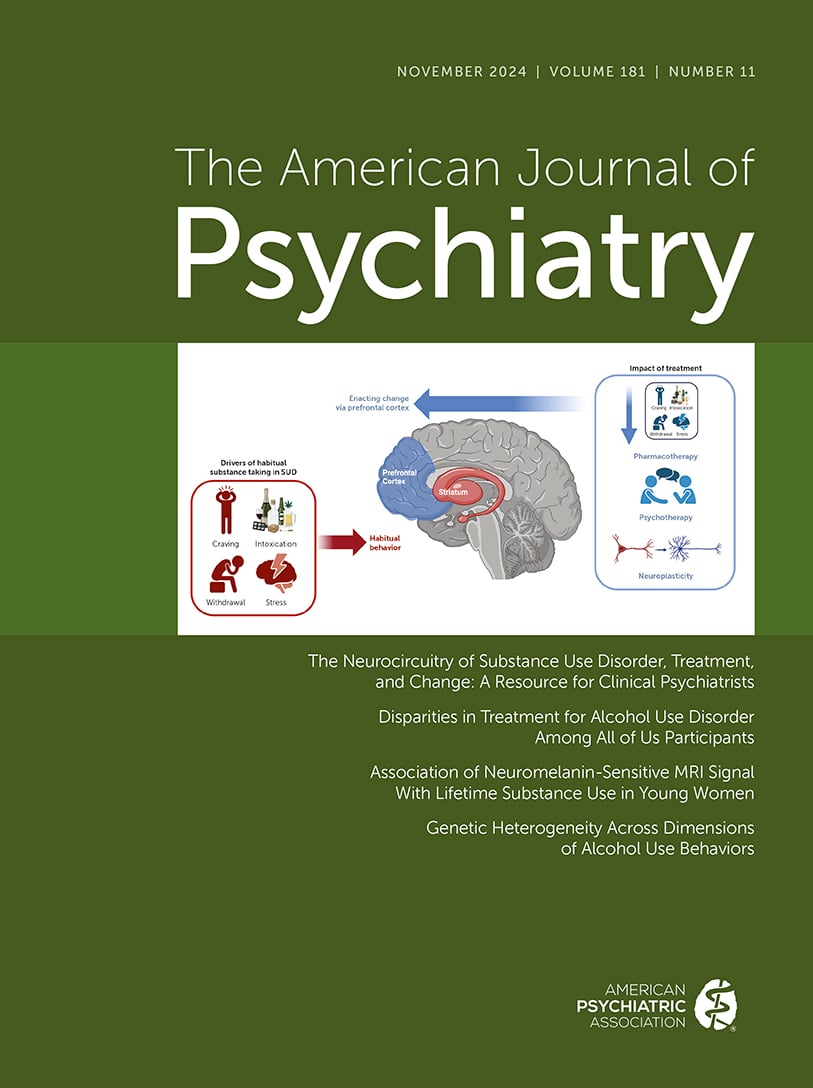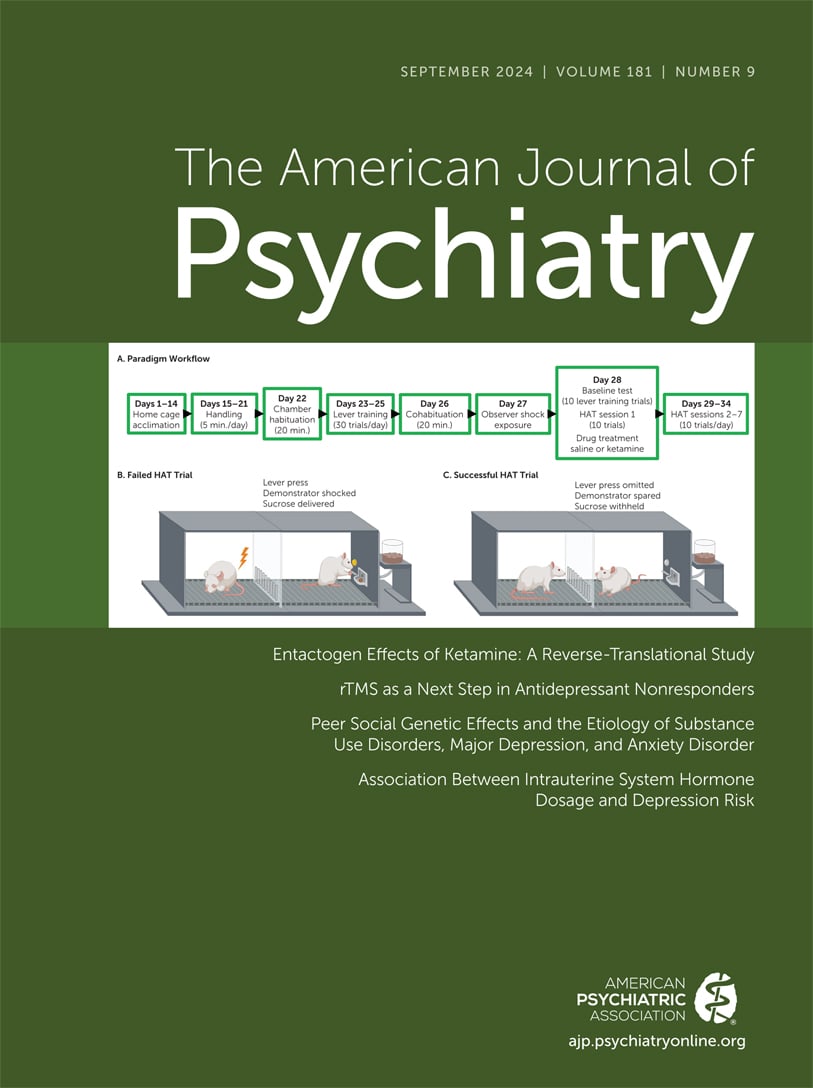American Journal of Psychiatry
- Volume 123
- Number 2
- August 1966
Article
Publication date: 01 August 1966
Pages121–136The basic mystery of the biological condition associated with human dreaming, the REM State, is how the purposes of survival are served by such intervals of remarkable nervous excitation which punctuate the sleep of all mammals. The author postulates that ...
https://doi.org/10.1176/ajp.123.2.121Publication date: 01 August 1966
Pages143–149In an age when the mentally ill were likely to be persecuted and feared, attempts were being made in 15th-century Spain to care for and treat them. During that century Spain witnessed the founding of seven hospitals for the mentally ill—in Valencia, ...
https://doi.org/10.1176/ajp.123.2.143Publication date: 01 August 1966
Pages150–155Increasing demands upon the available manpower in the field of psychiatry have fostered changes in the role of the psychiatric specialist. He is called upon more and more frequently to provide consultation and supervision of direct treatment by other ...
https://doi.org/10.1176/ajp.123.2.150Publication date: 01 August 1966
Pages156–165Eighteen subjects participated in the collection of data regarding the physiological effects of infused epinephrine, norepinephrine, and placebo and of laboratory-contrived situations of anxiety, pain, and anger. The study was designed to determine ...
https://doi.org/10.1176/ajp.123.2.156Publication date: 01 August 1966
Pages166–172Therapeutic camping for the mentally ill may provide an opportunity for remotivating chronic hospital patients. Two camping sessions initiated by the Maryland Department of Mental Hygiene were attended by 90 state hospital patients, each of whom had been ...
https://doi.org/10.1176/ajp.123.2.166Publication date: 01 August 1966
Pages174–176Although limitations on psychiatric care under Medicare provisions are significant, the 1965 legislation represents an extension beyond expected coverage and toward broad insurance-type benefits for the treatment of mental illness among the elderly. ...
https://doi.org/10.1176/ajp.123.2.174Publication date: 01 August 1966
Pages177–181As President-Elect of the American Medical Association, Dr. Hudson stresses the important role that every physician must play in improving the provision of mental health services. The medical profession has much to gain from a knowledge of modern ...
https://doi.org/10.1176/ajp.123.2.177Publication date: 01 August 1966
Pages181–190As Director of the American Hospital Association, Dr. Crosby anticipates the influence of Medicare upon existing and future hospital facilities. Trends include closer interaction between government and the voluntary health system and a changing concept of ...
https://doi.org/10.1176/ajp.123.2.181Publication date: 01 August 1966
Pages191–195Medicare presents both opportunity and challenge to the mental health professions. It will help eliminate the traditional discrimination against the psychiatric patient in health insurance and federal legislation and remove financial and other barriers to ...
https://doi.org/10.1176/ajp.123.2.191Publication date: 01 August 1966
Pages201–207This paper describes the use of lithium carbonate in the treatment of ten patients with manic-depressive disorders, manic type. In keeping with previous reports, we have found this to be an extremely effective method of controlling manic excitement. The ...
https://doi.org/10.1176/ajp.123.2.201Publication date: 01 August 1966
Pages207–210Nonpsychiatric physicians in a prepaid medical care program diagnosed 15 percent of their patients to have a psychiatric problem. This report reviews the patients' awareness of their psychiatric problems and their assessment of the nonpsychiatric medical ...
https://doi.org/10.1176/ajp.123.2.207Publication date: 01 August 1966
Pages213–218An educational-therapeutic approach to patient care has been demonstrated in an affiliate psychiatric nursing program in a state hospital. The rewards of this integrated interpersonal relationship approach are two-fold: 1. For the student nurse—a more ...
https://doi.org/10.1176/ajp.123.2.213Publication date: 01 August 1966
Pages218–221One hundred and thirty-nine adult phobic patients presenting for treatment were subdivided into four groups with phobias of: I) animals and insects; II) specific situations (e.g., heights, thunder); III) social situations; and IV) agoraphobia. All four ...
https://doi.org/10.1176/ajp.123.2.218Past Issues
View Issues Archive
Vol. 181 | No. 11

Vol. 181 | No. 10

Vol. 181 | No. 9
